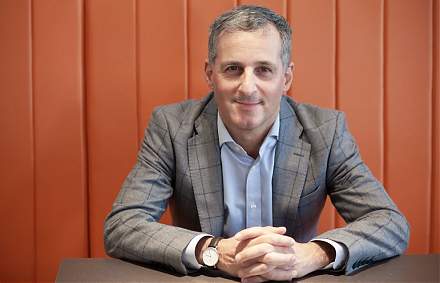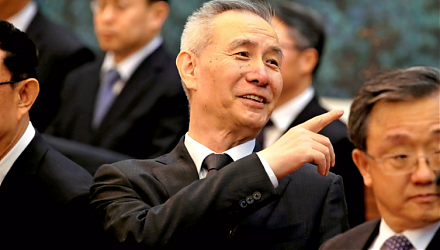

Home > Library > Macroeconomic theory and evidence in practice
Author Andy Yeh Alpha
This book presents many useful mathematical exercises in postgraduate macroeconomic theory and practice. Many quantitative exercises, examples, codes, and solutions draw from the collective wisdom of macroeconomic books by Acemoglu, Barro, Lucas, Prescott, Romer, and Sargent. The reader can benefit from these solutions with many mathematical equations and notations to become familiar with the core curriculum for postgraduate macroeconomic theory and practice. The core topics cover baseline macroeconomic time-series analysis, Lucas critique, Kydland-Prescott time-inconsistency problem of rule versus discretion, Solow-Swan steady-state growth model, Friedman permanent income hypothesis, human capital accumulation, investment-specific technological progress, recursive successive approximation, first-order Euler equation, transversality condition, Bellman dynamic programming optimization, Arrow-Debreu initial competitive equilibrium, sequential competitive equilibrium, recursive competitive equilibrium, Krusell skill-capital complementarity and skill-driven income inequality, Lucas tree asset pricing model, Mehra-Prescott equity premium puzzle, Barro fiscal stabilization, Ricardian equivalence theorem, dynamic stochastic general equilibrium (DSGE), Cass-Koopmans-Ramsey (CKR), real business cycle (RBC), and so forth.
stock market technology daron acemoglu robert barro robert lucas edward prescott david romer thomas sargent christopher sims olivier blanchard jordi gali roger farmer macroeconomic time-series vector autoregression real business cycle new keynesian phillips curve taylor interest rate rule solow-swan economic growth model steady state lucas critique dynamic stochastic general equilibrium keynesian search theory friedman permanent income hypothesis capital bellman dynamic programming optimization recursive competitive equilibrium equity premium puzzle fiscal stabilization ricardian equivalence skill-capital complementarity
Description:
This book presents many useful mathematical exercises in postgraduate macroeconomic theory and practice. Many quantitative exercises, examples, codes, and solutions draw from the collective wisdom of macroeconomic books by Acemoglu, Barro, Lucas, Prescott, Romer, and Sargent. The reader can benefit from these solutions with many mathematical equations and notations to become familiar with the core curriculum for postgraduate macroeconomic theory and practice. The core topics cover baseline macroeconomic time-series analysis, Lucas critique, Kydland-Prescott time-inconsistency problem of rule versus discretion, Solow-Swan steady-state growth model, Friedman permanent income hypothesis, human capital accumulation, investment-specific technological progress, recursive successive approximation, first-order Euler equation, transversality condition, Bellman dynamic programming optimization, Arrow-Debreu initial competitive equilibrium, sequential competitive equilibrium, recursive competitive equilibrium, Krusell skill-capital complementarity and skill-driven income inequality, Lucas tree asset pricing model, Mehra-Prescott equity premium puzzle, Barro fiscal stabilization, Ricardian equivalence theorem, dynamic stochastic general equilibrium (DSGE), Cass-Koopmans-Ramsey (CKR), real business cycle (RBC), and so forth.
Although this book does not serve as an attempt to cover all relevant areas of postgraduate macroeconomic theory and practice, this book encapsulates myriad hard and solid exercises that require mathematical logic to derive macroeconomic results. The editor puts a great emphasis on macroeconomic intuition and analytical rigor for the reader to better appreciate the substantive content of postgraduate macroeconomic theory and practice. This content spans at least a full year of twin sequential courses on macroeconomic theory and practice.
This analytic ebook cannot constitute any form of financial advice, analyst opinion, recommendation, or endorsement. We refrain from engaging in financial advisory services, and we seek to offer our analytic insights into the latest economic trends, stock market topics, investment memes, and other financial issues. Our proprietary alpha investment algorithmic system helps enrich our AYA fintech network platform as a new social community for stock market investors: https://ayafintech.network.
We share and circulate these informative posts and essays with hyperlinks through our blogs, podcasts, emails, social media channels, and patent specifications. Our goal is to help promote better financial literacy, inclusion, and freedom of the global general public. While we make a conscious effort to optimize our global reach, this optimization retains our current focus on the American stock market.
This ebook shares new economic insights, investment memes, and stock portfolio strategies through both blog posts and patent specifications on our AYA fintech network platform. AYA fintech network platform is every investor's social toolkit for profitable investment management. We can help empower stock market investors through technology, education, and social integration.
2022-09-15 11:38:00 Thursday ET

Capital structure choices for private firms The Kauffman Firm Survey (KFS) database provides comprehensive panel data on 5,000+ American private firms fr
2019-01-21 10:37:00 Monday ET

Andy Yeh Alpha (AYA) AYA Analytica financial health memo (FHM) podcast channel on YouTube January 2019 In this podcast, we discuss several topical issues
2018-11-30 12:42:00 Friday ET

Andy Yeh Alpha (AYA) AYA Analytica financial health memo (FHM) podcast channel on YouTube November 2018 AYA Analytica is our online regular podcast and news
2018-11-13 12:30:00 Tuesday ET

President Trump promises a great trade deal with China as Americans mull over mid-term elections. President Trump wants to reach a trade accord with Chinese
2023-10-28 12:29:00 Saturday ET

Paul Morland suggests that demographic changes lead to modern economic growth in the current world. Paul Morland (2019) The human tide: how
2019-01-17 10:41:00 Thursday ET

Sino-American trade talks make positive progress over 3 consecutive days as S&P 500 and global stock market indices post 3-day win streaks. Asian and Eu